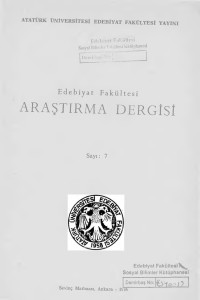Abstract
Most of the nineteenth-century linguists were primarily concerned with the diachronic study of language. De Saussure, however, was concerned with synchronic study of languages, which is characteristic of most of the contemporary linguists. De Saussure’s main objection was to the "Junggrammatiker notion” that restricted the scientific study and investigation of language to its historical aspects. In the twentieth century, this theory implied
that historical considerations are irrelevant to the investigations of particular "temporal States” of language.
References
- -------------------------------------
Abstract
Most of the nineteenth-century linguists were primarily concerned with the diachronic study of language. De Saussure, however, was concerned with synchronic study of languages, which is characteristic of most of the contemporary linguists. De Saussure’s main objection was to the "Junggrammatiker notion” that restricted the scientific study and investigation of language to its historical aspects. In the twentieth century, this theory implied that historical considerations are irrelevant to the investigations of particular "temporal States” of language.
Keywords
References
- -------------------------------------
Details
| Primary Language | English |
|---|---|
| Subjects | Language Studies (Other) |
| Journal Section | Research Articles |
| Authors | |
| Publication Date | February 28, 2024 |
| Published in Issue | Year 1976 Issue: 7 |
Content of this journal is licensed under a Creative Commons Attribution NonCommercial 4.0 International License


